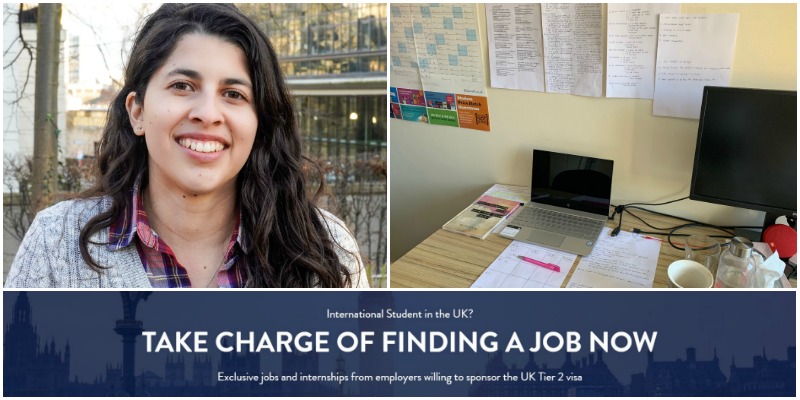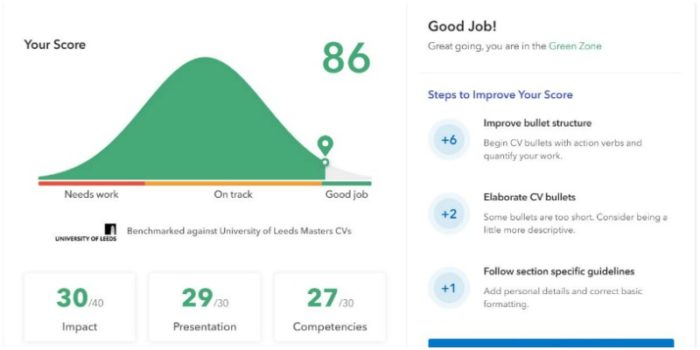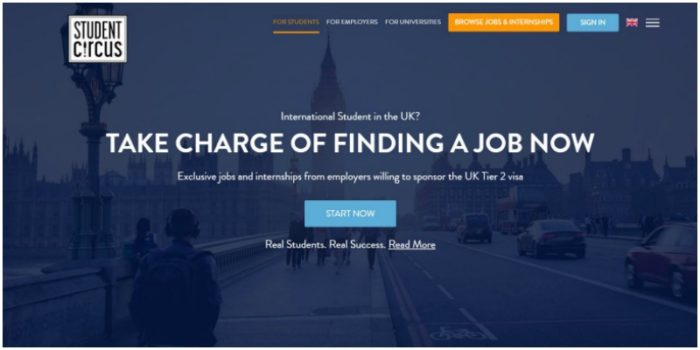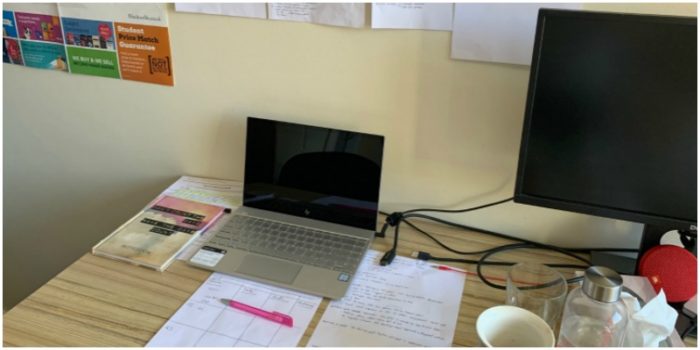My experience of getting a job in the UK

Hello! I am Francisca from Chile. I wrote the same version of this blog in Spanish if that’s more comfortable for you. I am currently finishing my MSc. Management degree at Leeds University Business School. In this opportunity, I will tell you my successful story about getting a job in the UK, adding some tips for the process.
First of all, I would like to highlight that I already had 4 years of work experience before coming to study in the UK. For someone that is in a similar situation, my first advice would be related to the programme you are choosing. In case you enjoy your current career progression and would like to continue in the same line, I would recommend a programme in that same area or some like mine which is a broad programme that opens many doors in terms of job opportunities in the future. If you would like to completely change your career you need to bear in mind that this could mean to get a new position in a lower role than you already had. It is a risk you want to consider, but anyway every case is always different so don’t feel disappointed.
Now let’s move forward to the basic steps of looking for a job in the UK as an international student.
- Do I want a job in the UK? My first approach with looking for a job started with a very important thing you will hear a lot in the UK (at least in the business environment) which is NETWORKING. This means to meet people with your same interests or from the industries you would like to work. A very powerful tool for this is LinkedIn, which I use quite a lot. Different events are organised by the Career Centre from the university, like job fairs, workshops and Questions and Answer sessions with different employers. You can check more details in their website here.
- CV Preparation. If you are actively looking for a job, you need to have a CV that points out your strengths and experiences. I used the tool VMock provided by the university where you upload your CV and it gives you points evaluating aspects such as impact, presentation and competencies. This is a very useful tool to adequate your international CV to the British approach and gives you specefic feedback to correct and improve your score. It takes a couple of tries to get a good score and you have 10 free attempts. If you want even further advice you can book an appointment with the Career Centre and review your CV there with an expert.

- LinkedIn update*. If you are planning to use LinkedIn as a searching tool, make sure that your profile is updated. You should at least have a clear picture, a headline and the about part that describes you well. In the last part you can also mention your work aspirations and preferences. Your profile could be also complemented with references if you have. You can check my LinkedIn profile as an example.
- Cover Letter. In almost every work you apply, the employer will ask for a cover letter. Here you should state why you are the best candidate for the position. In this point my suggestion is to have a generic cover letter which highlights your strengths and experiences, similar as the CV, but this cover letter needs to be reviewed and adapted to every different position you apply. It is important in the cover letter to mention your aspirations and how the role will help you to achieve those aspirations, additionally how you would add value as being part of the company.
- Apply for jobs. This is probably the longest step in the long way of getting a job. The first thing for you to know is that you will need PATIENCE. Some processes require time and will require to complete tests for your applications, so you need to dedicate time to this. You can look for opportunities to apply in the job fairs done by the university, in LinkedIn or different websites. Student Circus is a good place to start as it is focused on international students looking for a job in the UK, Click for the website. You should also consider applying to companies that are Visa Tier 2 sponsors, unless you are graduating on 2021 and therefore you have a longer time to stay and work after you finish your studies without changing your visa. More information is here.

- Getting an interview! From the process of applications to getting an interview you can wait a long period and several rejections, but don’t feel disappointed. It is important that you can use that time to prepare for your interview. A previous reading about the company it is always important, for example every Amazon’s interviews are based on their leadership principles which you should know and prepare examples of where in your experiences you evidence those principles. Don’t forget as well the basics for your interview, like setting the place (considering that under Covid-19 situation interviews where run online), ensure that you are in a quiet place, with good internet connection and that no one will interrupt you during that time, dress as if you are going to a face to face interview, and don’t forget to be yourself!. As I am a truly believer that hard work pays back, you can see a picture of how I prepared myself for my interview. I review how my previous experiences were going to be useful for the role I was applying.

In my case the role I got was posted by a connection I had on LinkedIn. I sent my CV and cover letter and went through the interview process. The company I will be working is the same multinational company I was working before studying my master’s, so it was very useful to meet people throughout the four years I was there. Again, this is my personal experience and I hope the tips will be useful for when you are looking for a job.
If you have any doubts, you can drop me an email or contact me on LinkedIn. I am happy to help!
Good luck on your job search!
